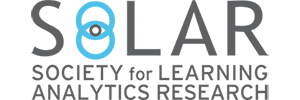Learning Analytics in the Knowledge Age
Bodong Chen, Assistant Professor
University of Minnesota
February 11, 2015

About Myself
- Beijing Normal / Peking U / U of Toronto alumnus
- Joined LT in January 2015
- Research areas
- knowledge building
- learning analytics
- online learning (MOOCs)
- social media
- (An R hacker + a fan of reproducible research)
Learning Analytics: The Promise
Education Paradigms (Ken Robinson)
Varied learning environments
Student Diversity
represented by work status
Multiple Intelligence & Cognitive Styles
(Gardner, 1983)
Participatory Culture (Jenkins, 2006)
The Challenges to Support Learning in the Knowlege Age
Since learning is plural and ubiquitous, we need to:
- understand learning needs – societal, organizational, personal
- understand learners – background, beliefs, values, dispositions…
- understand learning when it occurs – what, when, how, who…
- impact/empower learning – “feedback loops”, engage stakeholders
- …

Learning analytics is the measurement, collection, analysis and reporting of data about learners and their contexts, for purposes of understanding and optimizing learning and the environments in which it occurs.

Learning analytics is the measurement, collection, analysis and reporting of data about learners and their contexts, for purposes of understanding and optimizing learning and the environments in which it occurs.
But, Big + Rich Data
An Emergent Data-Driven Culture
The Deal!
To bring technical, pedagogical, and social domains into dialogue with each other
- computer scientists, machine learning experts, statisticians, and mathematicians had the technical capacity to make sense of large data sets, but lacked grounding in education and learning theory and literature
- learning scientists, psychologists, and sociologists had the theoretical lens to evaluate the social power structures and “soft domains” of learning, but lacked grounding in emerging data and analytics methods
The (Young) Field of Learning Analytics
- 2011 – First academic conference, Banff, Canada
- 2011 – Inception of Society for Learning Analytics Research
- 2013 – First summer institute, Stanford University
- 2014 – First issue of Journal of Learning Analytics

The Field of Learning Analytics
Analysis of the Community of Learning Analytics (Nawaz et al., 2013)
The Field of Learning Analytics
Twitter community flow (Chen et al., 2015)
The Field of Learning Analytics
Topic modeling of LAK/EDM publications (Sharkey et al., 2014)
The Field of Learning Analytics
Twitter community topics (Chen et al., 2015)
Important Distinctions
Learning Analytics vs. analysis of learning data
Learning Analytics vs. Educational Data Mining (EDM)
Learning Analytics vs. Academic Analytics
Articulate Learning Analytics
- LA involves (not necessarily big) digital data
- LA involves (not always complex) automated analytical processes
- LA informs / empowers learning and teaching
- (good) LA has a clear sense of what 'learning' means
- (good) LA is aware of its pedagogical and epistemological assumptions
Some Example Areas
- Analytics around social interactions
- Analytics around learning content
- Analytics of learning pathways
- Analytics in different spaces (digital/F2F)
- Analytics on interaction with the learning system (university/K-12/corporate)
- Analytics on intervention and adaptation
- Evaluation of analytics
Techniques
Five primary areas of analysis (Baker & Siemens, in press; Baker and Yacef, 2009):
- Prediction
- Structure discovery
- Relationship mining
- Distillation of data for human judgment
- Discovery with models
Applications
Five areas of application (Bienkowski, Feng, and Means, 2012):
- Modeling user knowledge, behavior, and experience
- Creating profiles of users
- Modeling knowledge domains
- Trend analysis
- Personalization and adaptation
Important considerations
- Hidden assumptions (Knight, et al., 2013)
- Pedagogical interventions (Wise, 2014)
- Integration
- Agency
- Reference frame
- Dialogue
- Transparency in learning analytics practice
- Ethical practice
Learning Analytics is For Learners & Learning!
Going Forward
To advance as a field, LA researchers and practitioners need to address the following:
- development of new tools, techniques, and people;
- data: openness, ethics, and scope;
- target of analytics activity; and
- connections to related fields and practitioners.
You should get involved!
- Attend LAK conferences (online sessions)
- Apply for LASI – capacity building for the field
- Join online conversations (e.g., Twitter, Google Group)
- More importantly, consider integrating LA in your work!
Guest speakers in my LA course:
- Simon Knight, Feb 12
- George Karypis & Jeff Gran, Feb 26
- Stian Haklev, Mar 5